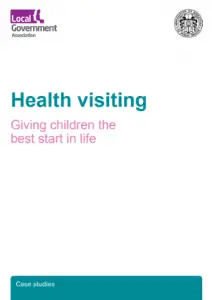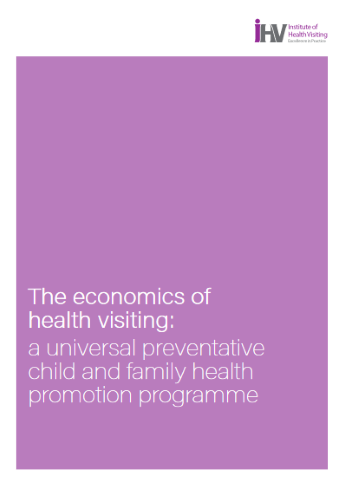The Institute of Health Visiting welcomes Saturday’s announcement by the Government of the 75 local authority areas selected for a share of £302 million to create new Family Hubs in England.
The announcement puts an end to an anxious wait for local authorities, and was made as part of a broader package of family-related announcements, including announcements relating to the Supporting Families programme and the government’s holiday activities and food programme. The full press release can be found here; it includes the names of the 75 eligible local authorities. The methodology for pre-selecting the 75 local authorities eligible for the programme can also be found here.
The Family Hubs and Start for Life programme is jointly overseen by the Department of Health and Social Care and the Department for Education. The Best Start for Life Vision to give every child the best start in life was launched last March, and the funding settlement was first set out in the autumn budget.
The £302 million for the Family Hubs and Start for Life programme includes:
- £100 million for bespoke parent-infant relationship and perinatal mental health support
- £82 million to create a network of Family Hubs, improving access to a wide range of integrated support services for families with children aged 0-19
- £50 million to establish breastfeeding support services
- £50 million to fund evidence-based parenting programmes
- £10 million to support local authorities to publish a clear ‘Start for Life offer,’ and
- A further £10 million to to trial innovative start for life workforce models.
Importantly, the Government has stipulated that the health visiting service is central to the success of the Best Start for Life Vision and is listed as one of six essential services that will form the core of the infrastructure of support available to all families in the Family Hub model.
Whilst no specific ‘ring-fenced’ investment in health visiting was forthcoming in this announcement, we have been advised by Government Advisor and Chair of the Early Years Review, Dame Andrea Leadsom MP, that health visitors will be ideally placed to make the most of this investment and deliver increased packages of support to address the priorities of breastfeeding, parent-infant relationship and perinatal mental health support and evidence-based parenting programmes as part of an integrated system of support. Within the 75 local authority areas, 5 areas will also receive a share of £10 million to trial innovative start for life workforce models to strengthen health visiting support.
Alison Morton, iHV Executive Director commented:
“This announcement will be good news for 75 local authorities who will receive much needed investment to strengthen the support that they provide to babies, young, children and families during the critical first 1001 days of life which lay the foundation for future health, wellbeing and success across the life course.
“To achieve their ambition to tackle health disparities and level up, it is vital that the Government also invests in the universal health visiting service which is a preventative public health service that ‘goes upstream’ and reaches all families – ideally preventing problems happening in the first place or identifying them early.
“Currently too many vulnerable children are ‘invisible’ to services and are missing out on the support that they need – we must do better and, to ensure that we do, we need more health visitors. We hope that this announcement marks the start of a shift in national policy that prioritises the critical first 1001 days of life. Vulnerable babies, young children and families live in every postcode, and further investment is needed to ensure that the Start for Life vision becomes a reality for the whole country.”
The iHV will be working with local authority areas to support the development of their evidence-based ‘Start for life’ offer and integrated pathways. We invite any local areas who are interested in our consultancy and sector-led improvement work to contact us for further information on bespoke packages of support at [email protected].
Further information on integrated pathways for perinatal and infant mental health (PIMH) support and the latest PIMH research can be found here, and the role of health visiting and who health visitors are can be found here.





